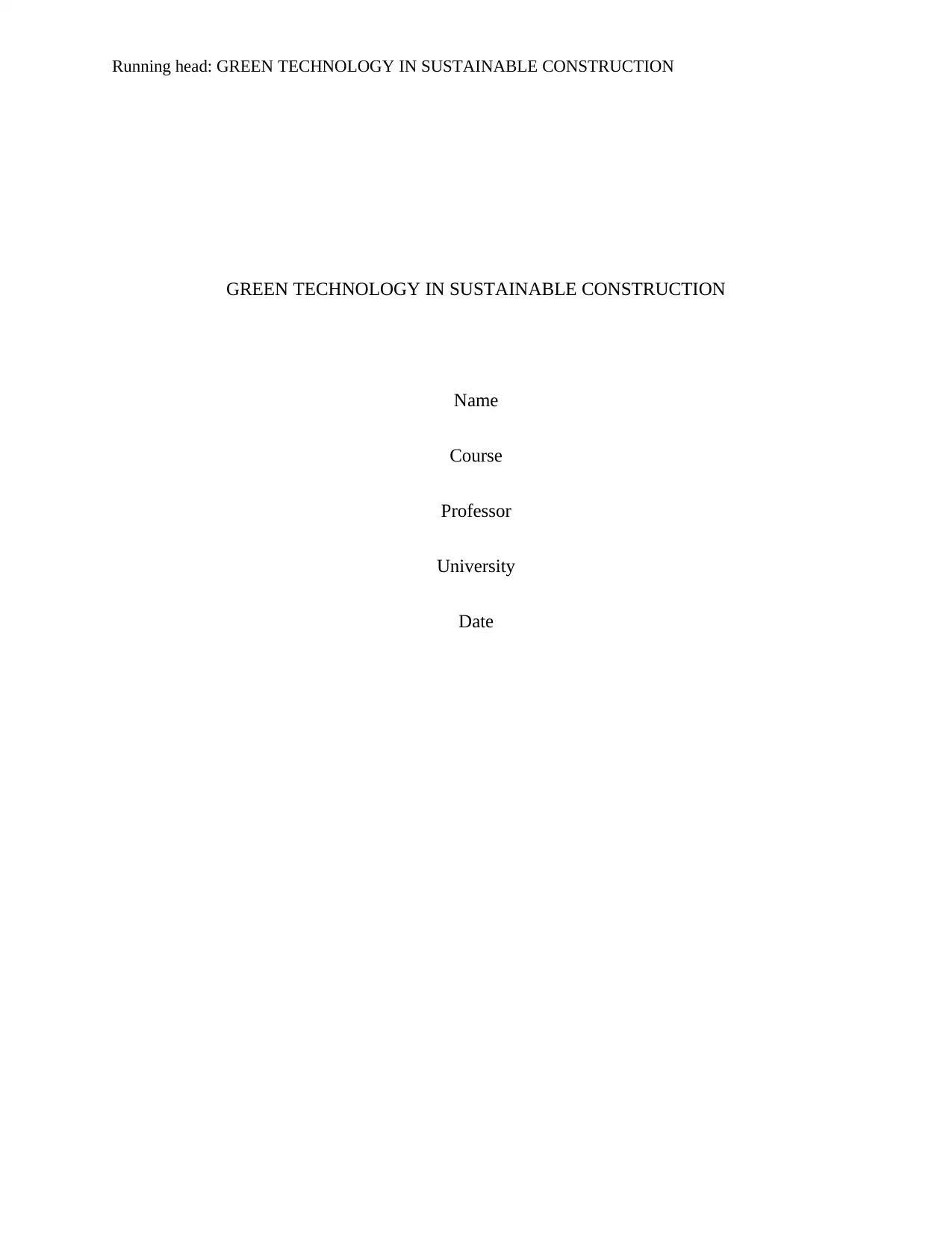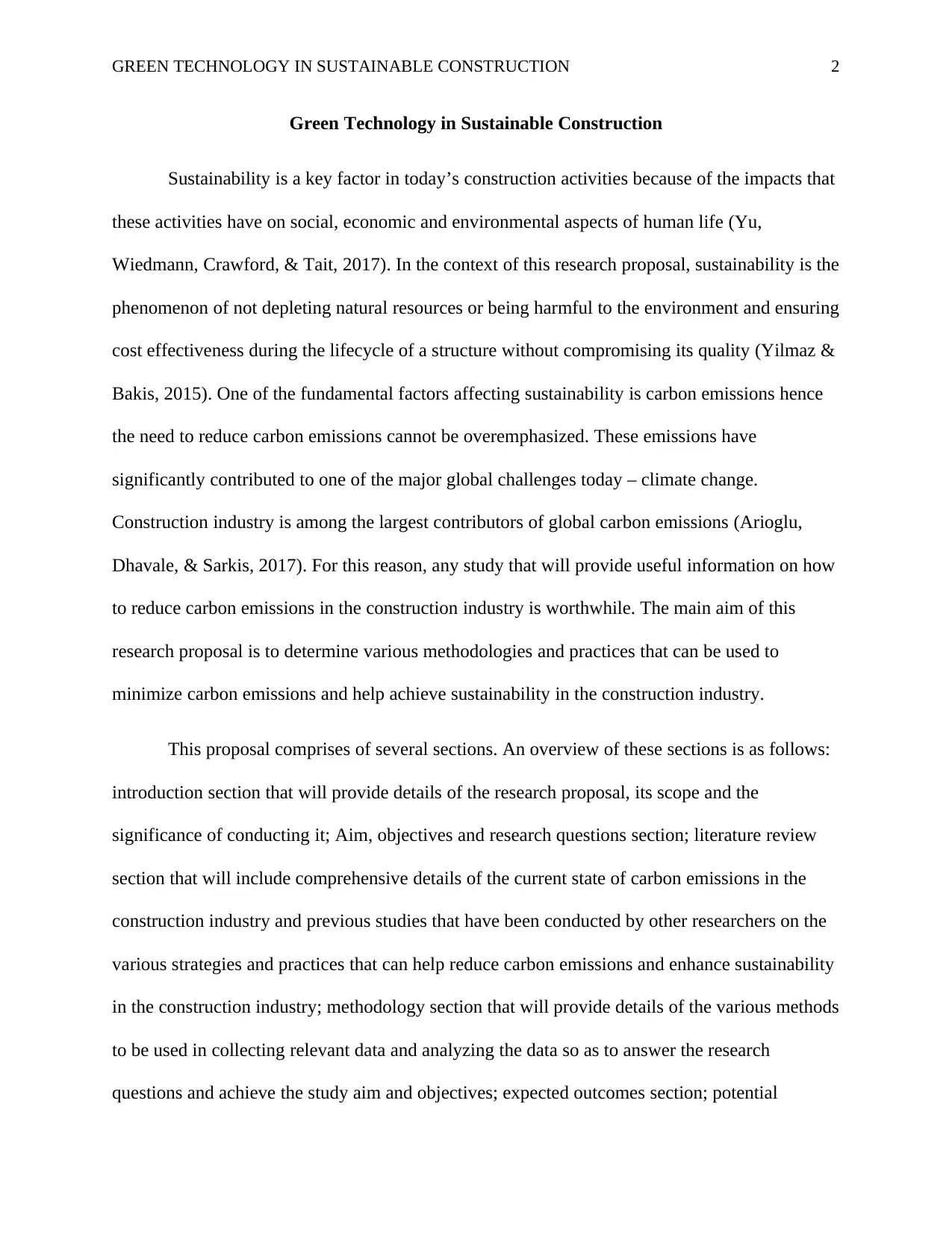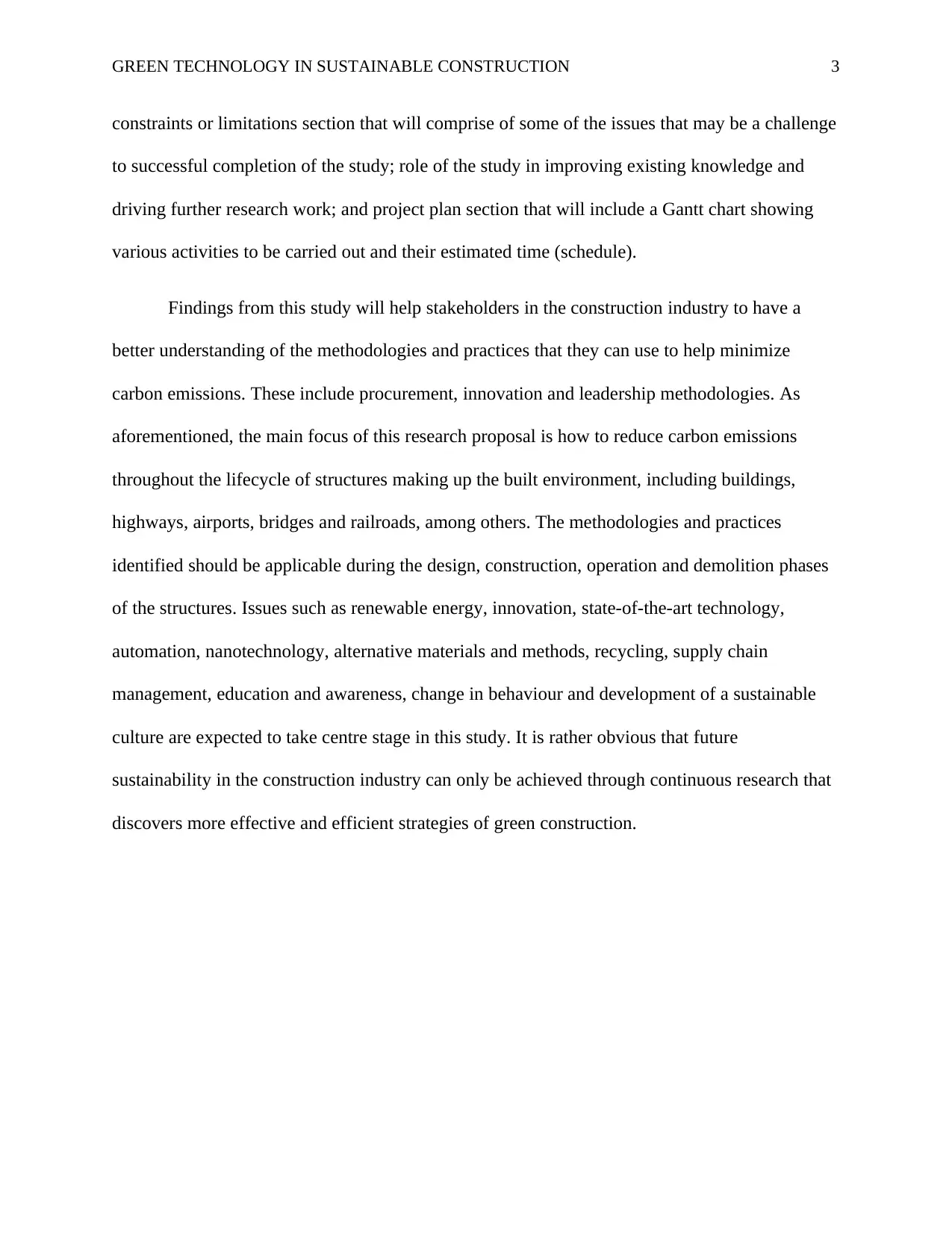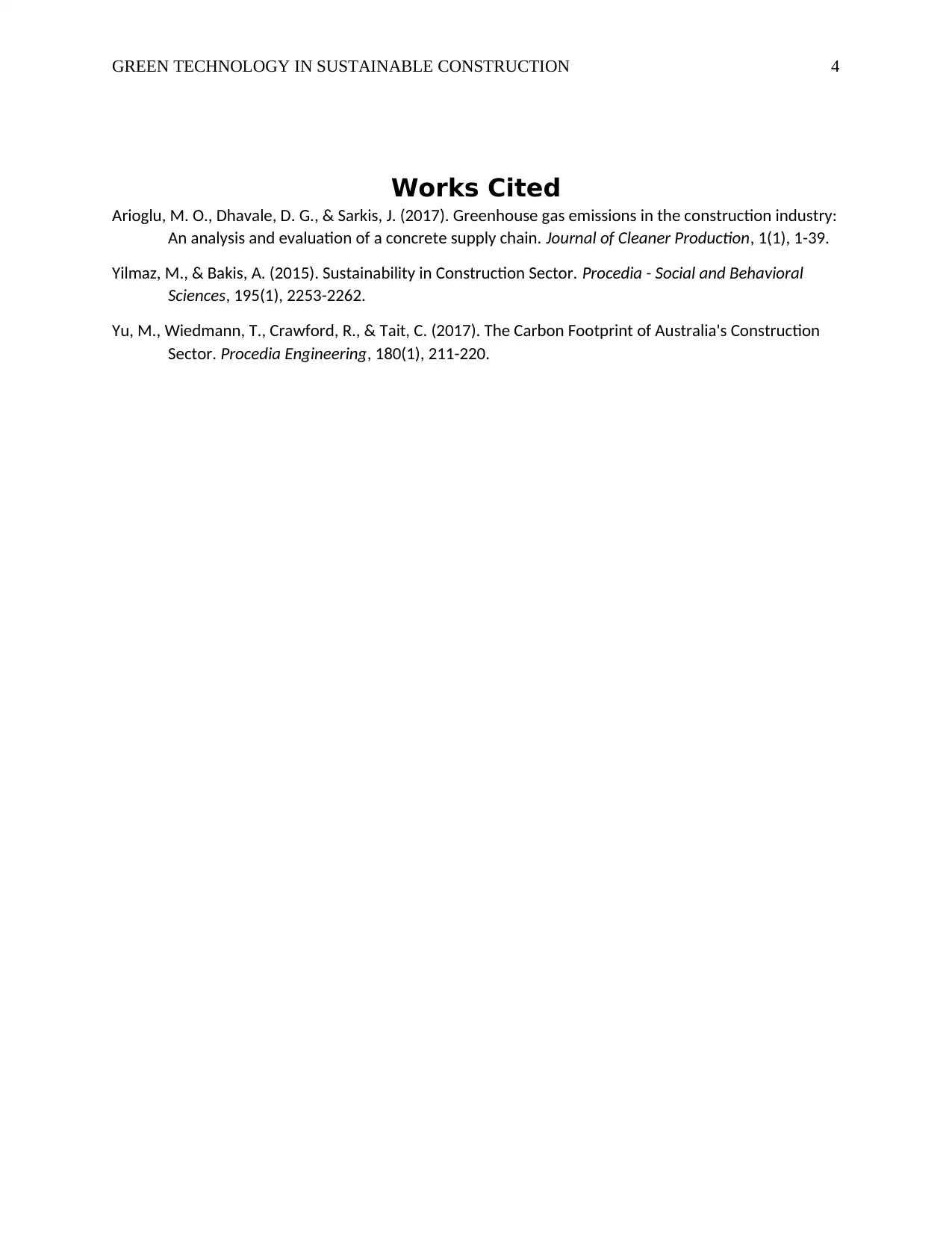University Research: Green Technology in Sustainable Construction
VerifiedAdded on 2022/11/18
|4
|732
|138
Report
AI Summary
This research proposal focuses on green technology in sustainable construction, emphasizing the reduction of carbon emissions throughout the lifecycle of structures, including buildings, highways, and bridges. The study aims to identify methodologies and practices that minimize environmental impact and promote cost-effectiveness. Key areas of focus include renewable energy, innovation, automation, alternative materials, recycling, and supply chain management. The proposal outlines the research's scope, objectives, and research questions, along with a literature review, methodology, expected outcomes, and potential limitations. The research seeks to inform stakeholders in the construction industry about effective strategies for green construction, such as procurement, innovation, and leadership methodologies. The findings will contribute to the development of more efficient and sustainable practices within the built environment, aligning with the broader goal of mitigating climate change and promoting resource efficiency. The study's significance lies in its potential to drive further research and improve existing knowledge in the field of sustainable construction.
1 out of 4











![[object Object]](/_next/static/media/star-bottom.7253800d.svg)